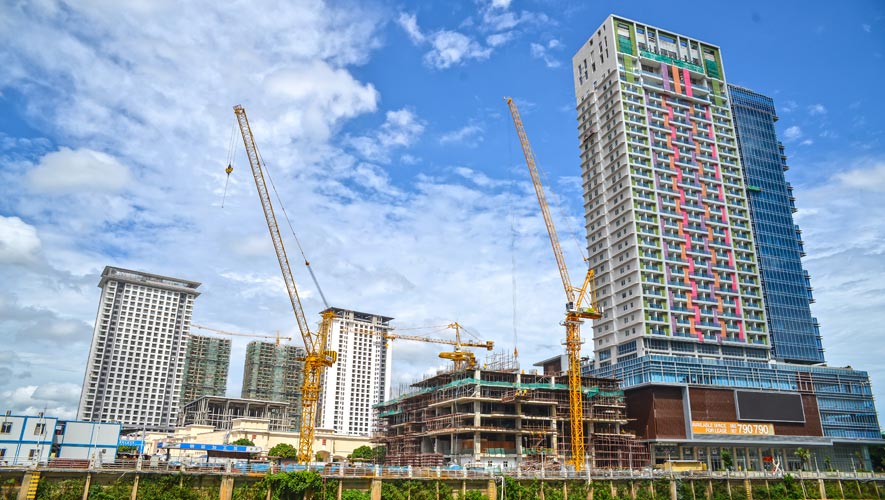Cambodia’s draft construction law, which was signed by Prime Minister Hun Sen on August 30, is being lauded as a necessary and key development for public safety.
For the latest Cambodian Business news, visit Khmer Times Business
Proponents say the construction law, although not yet in a final version, is needed in a country that has seen a massive building boom over the past few years along with its fair share of fatal building collapses and recent demolitions of completed buildings because of shoddy construction, particularly in Sihanoukville. The government recently stopped construction on 22 projects.
It is the intention of the construction law to fix these issues. But is it too little, too late – and how will tougher regulations affect the real estate market? Many are predicting a slowdown or at least changes in the types of projects that are developed and the rate of that development.
In a statement released after the Council of Ministers meeting on Aug. 30, the government said the Construction Law has several objectives: developing the construction and real estate industry effectively, strengthening management in the construction sector and enhancing safety standards, among others.
The government noted that the accountability and efficiency of construction professionals must be strengthened.
How the implementation of the law will shake up the real estate market is anyone’s guess, but many are predicting a slowdown or at least a shift in how projects are developed.
As for the buildings that are already standing, it might be the case that they will have to be inspected.
In the past two years alone, the rate of new development, particularly in residential real estate, has been increasing at a furious pace. For example, the country’s condominium supply is expected to grow 120 percent in 2019. Most of that construction has been driven by offshore Chinese investment. Quick unauthorised construction has been blamed for many of the issues addressed in the draft construction law.
Real estate slowdown?
The government says the draft law aims at increasing investor confidence in the construction sector and promoting efficiency in the real estate market and it highlighted the role construction plays as a pillar of economic growth in the country.
“During the past 10 years, investment in construction has grown steadily and it will keep growing strongly,” the government said.
Yet some in the private sector are predicting that the influx of Chinese construction investment, which has been the main driver of development, could be slowing, meaning the bulk of the buildings have already been built without a law in place.
Thousands of Chinese are reportedly leaving Sihanoukville, according to recent media reports. The Chinese economy is limping from debt. The US trade war and other factors such as a labour shortage, an ageing population and a new ban on online gambling in Cambodia are all playing a role in curbing outbound Chinese investment money, some real estate analysts say.
A quick review of online chat rooms in China suggests a crisis of confidence among many Chinese stemming from unplanned development, flooding, bad traffic jams, expensive housing and many Chinese being lured in with the promise of making easy fortunes. A Taiwanese developer, who did not want to be named, recently said he thought the market might “implode”.
“We have seen a bit of a slowdown,” says Dan Davies, asset director at CBRE. “Leads are disappearing.”
Davies says the market is in a lull and some projects have just stopped. He expects that up to 30 percent of planned projects might not happen at all. “A lot of it is based on Chinese money, which is fickle,” he says.
Safety first
Whether the construction law boosts investor confidence is yet to be seen, but all seem to agree that it is necessary for safety and is long overdue.
In its annual White Paper, EuroCham noted that one purpose of the building code is to provide more rigorous and effective regulation over safety standards within the Cambodian construction sector because there are currently relatively limited provisions in place.
“At present, while the developers of large construction projects often voluntarily adhere to an international set of standards, it is not uncommon for developers and or contractors to cut corners in pursuit of higher profit margins on smaller projects,” according to the White Paper. “As a result of poor construction standards, there have been a number of worker fatalities over recent years.”
It’s not clear when the final version of the construction law will be released. EuroCham Executive Director Blaise Kilian says it should be soon. “I think it’s a national priority so this one should be fast.”




